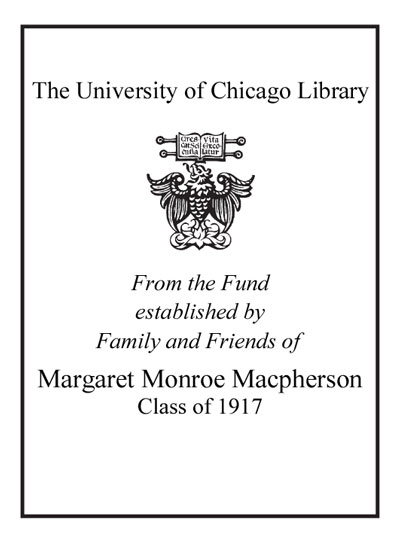Penal abolitionism /
Saved in:
| Author / Creator: | Ruggiero, Vincenzo. |
|---|---|
| Imprint: | New York : Oxford University Press, 2010. |
| Description: | x, 234 p. ; 23 cm. |
| Language: | English |
| Series: | Clarendon studies in criminology Clarendon studies in criminology. |
| Subject: | |
| Format: | Print Book |
| URL for this record: | http://pi.lib.uchicago.edu/1001/cat/bib/8142087 |
Table of Contents:
- 1. Introduction
- 2. Crime as Trouble
- Anti-Platonism
- Appetites
- Ignorance and darkness
- A Critique of Ethical Intellectualism
- Hierarchical Arrangement
- Acts and Crimes
- Crime as Sadness
- 3. Substantive Justice and Self-Regulation
- Settings and Conflicts
- Professionalism
- Knowledge and Meaning
- Industrialized and Natural Justice
- Formal and Substantial Law
- Sacredness
- 4. Cultures of Punishment
- The Right to Punish
- The Right to be Punished
- Vengeance and Passion
- Consequentialism
- Institutional and Material Functions
- Carceral Social Zones
- 5. The Limitation of Pain
- No Defence for Prison
- The Evolution of Pain
- Reluctant Retribution
- The Manufacture of Handicaps
- The Immorality of Moralizing
- Irrationality, Utility, and the Gift
- 6. Social Christians and Mercy
- Equality and Solidarity
- Forging One's Religion
- The Monarch's Mercy
- Mysterious Iniquity
- Liberating Theology
- Pietas
- 7. Abolitionist Praxis
- The Judge and the Bum-Bailiff
- The Unfinished and Action Research
- The Abolitionist Stance
- Law and Conflict
- 8. Mutual Aid and Cordiality
- Law and Authority
- Tightly Knit Societies
- The Business of Pain
- No More Prisons
- Cumulative Anticipation
- 9. Participation, Conciliation, and Mourning
- Participatory Disputes
- The Tyranny of Public Opinion
- Knowledge, Proximity, and Dialogue
- Victims
- Making Amends
- Shaming and Peace
- 10. Conclusion
- Against Antinomian Thinking
- Surrogate Victims of the Law
- The Disease of the Hangman
- Abolitionism as Public Sociology
- References
- Index

